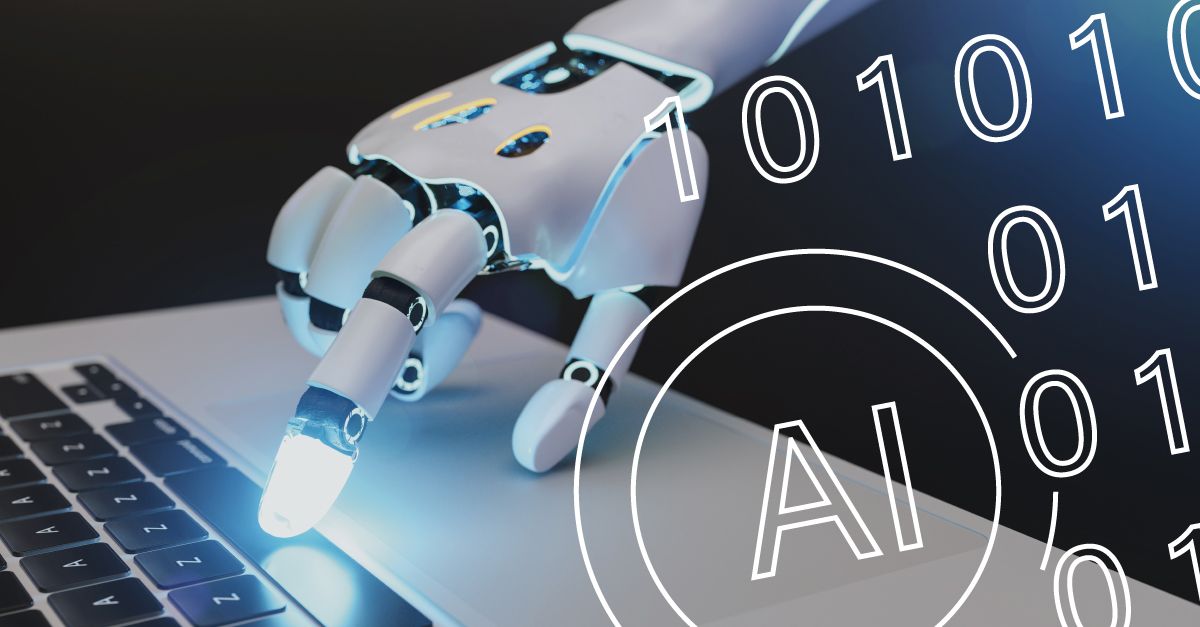
The tech industry is barreling toward a future powered by AI, and there’s nothing anyone can do to stop it at this point. What advertisers CAN do is make sure they’re using new technologies correctly and avoiding the pitfalls that can come with rapid adoption. Artificial intelligence has a lot of potential for good and ill, and Genius Monkey is here to explore a few of the possibilities the future is now offering.
Advantage: Finding Answers Instead of Insights
Programmatic now dominates digital advertising, and a perk of this transition is the abundance of data that marketers have at their fingertips. Good data can inform great decisions, but there remains a large space between insight and action. A database filled with raw numbers is only as good as the analysis performed, which can be a tedious and imperfect process when done by hand.


In the past, the tedium has been worth it as the power of data insights cannot be denied. Genius Monkey is a platform driven by data, and users see some of the best programmatic performance in the industry. Part of the platform’s success can be attributed to industry-leading reports that not only display the numbers, but offer real answers as to how and why it is working.
Now, all the tedium of hand-cranked analytics can be circumvented and the process is exponentially quickened. Those answers can be applied in real-time, which further generate results that offer even more answers. It’s a continuous loop of improvement that every advertiser can achieve much faster using AI-powered analytical tools.
Danger: Showing What You Want to See
Many online advertising platforms now offer an AI-based solution – like Google’s Performance Max and Meta’s Advantage+ Shopping Campaigns (ASC) – promising great results on any budget, but zero insights as to where and on what the money is being spent. The wide-reaching nature of these platforms offer a lot of possibilities, but also gives platforms the wiggle-room to play a little fast and loose with the guaranteed “results” they offer.
Take the example of James and James (J&J), a high-end furniture brand investing heavily into Meta’s ASC. The reports from the platform suggested that Meta was constantly providing J&J with quality leads, but an incoming CMO detected that something was fishy. After performing a top-to-bottom analysis of all their marketing efforts, J&J realized that ASC was not proportionally contributing to their bottom line. While the leads Meta sourced were indeed interested in furniture, most were not looking for the high-quality products that J&J was offering. Most of the generated leads went on to convert with other businesses at lower prices.


This eerily echoes the hypothetical situation highlighted in Genius Monkey’s latest whitepaper on MER vs. ROAS. From the right perspective, metrics are easy to manipulate and bend to show a certain result. While a human can read in-between the lines and see what a strategy is lacking, an AI will show what it is trained to show; in the case of J&J, Meta’s AI-powered solution was misleading and over-stating its success.
This is not to say that Meta’s or any other platform’s AI tools aren’t useful; they illustrate the importance of reeling in AI’s mechanical enthusiasm with experienced human oversight. Perhaps Meta’s ASC wasn’t the best tool for J&J at that time, but it would have worked better had spending been steadily increased over time with a team monitoring and adjusting its progress.
Advantage: Streamlined Setup and Creative
There are many steps that go into creating a programmatic campaign: advertisers must decide their goals, message, mediums, conversion definitions, audience, how to reach them, publisher requirements, and THEN go about creating the ads themselves. This preparatory process used to take weeks and months; with AI, it can potentially take hours.


AI is good at detecting patterns, and advertisers can use it to answer questions that used to take lengthy market research to uncover. Shrinking research timelines lets marketers focus on the more human-centric aspects of advertising: customer experience, brand voice, and creative strategy.
Creative is a highly iterative process, and many say that the hardest part is finding a place to start. This is where generative AI has found its niche in the creative sphere, quickly reorganizing and generating image ideas on a foundation laid out by the creator. It’s never a good idea to throw ideas into an AI prompt and copy-paste the results, but AI can help creatives focus in and execute on a vision with unprecedented speed.
Danger: Keeping Up with Current Events and Trends
While AI is designed to learn and intake more information as it goes, it still is – and likely will always be – not perfect. One needn’t look hard to find hilarious examples of generative AI creating horrifying images, presenting factually incorrect search summaries, and offering demonstrably bad advice.
Context will always be important, and that is an aspect that AI has trouble keeping up with. The J&J situation described above likely occurred as a result of this lack of context; most consumers approach buying through Facebook as a low-cost garage sale rather than a curated list of premium options.
Current events can also render certain advertisements in bad taste. Genius Monkey often uses the example of advertising used cars or boats in areas that have recently experienced heavy flooding; AI might look at the trends and sentiments online and think such areas were in dire need of transportation, while a human might understand that such messages wouldn’t endear the audience to them at that moment.
AI Isn’t a Silver Bullet, but a Powerful Tool
We all know how powerful AI can be, and the push toward AI-driven services have left many nonplussed at best. Even scarier than a failed campaign is the notion that “the times themselves be a-changing”, and we all have the choice to get on and adapt, or potentially be left behind. In matters of AI adoption, there’s perhaps no safer next step then partnering with a platform that has been using and mastering it for decades.
Since 2009, Genius Monkey has been leveraging the latest technologies – including machine learning and AI – to continually push the boundaries of possibility in programmatic marketing. Our platform features full end-to-end attribution across all programmatic channels, letting advertisers see the entire customer journey and optimize their campaigns accordingly.
If you’re ready to see what AI executed well can do for your marketing, get in touch with Genius Monkey today!




